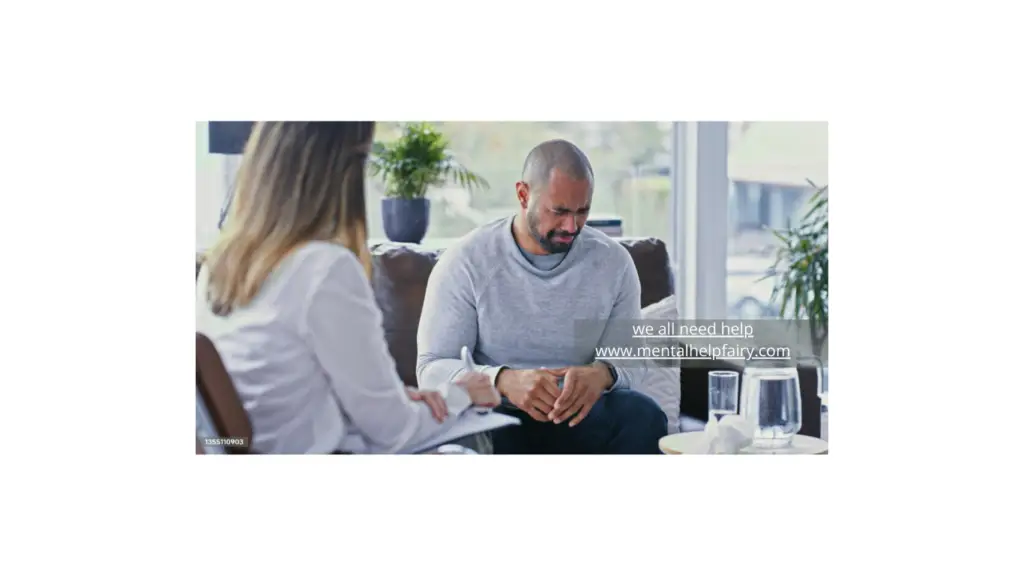How to Find a Therapist You Can Trust (When It Feels Like Everyone’s Just Selling You a Dream)

Let’s face it: finding a therapist you can trust feels like finding a needle in a haystack. The journey is often full of self-doubt, endless Google searches, and a hope that someone out there will finally understand. But this isn’t just about “finding a therapist”—it’s about finding someone who feels safe, competent, and right for you.
Why Trust Is Key in Therapy
When it comes to counseling, trust isn’t just a bonus; it’s the foundation. Without it, therapy feels as hollow as a broken promise. Trust lets you reveal your real thoughts and struggles, turning therapy into more than just a conversation—it becomes a powerful tool for change.

1. Start with a Search for the Right Therapist
The first step? Google it. Search for terms like “Best therapist near me,” “Therapists who accept insurance,” and “Online therapy for mental health support.” These searches help you find a range of options. Once you’ve found some names, it’s time to go deeper.
2. Look Beyond the Surface
Therapists’ profiles can look impressive, but do they tell you what you actually need to know? Look for transparency in their experience and specialties. A therapist who’s just stacking up credentials might lack the warmth and empathy you’re seeking. Consider reviews from other clients and look for signs that they specialize in what you need.
Example:
In my practice, I work with clients dealing with deep-rooted issues, from anxiety to grief. One client had seen three therapists before who only offered cookie-cutter solutions. When they came to me, we focused on specific exercises to tap into their core emotions, which finally made therapy feel real.
3. Identify Your „Must-Have“ Therapist Traits
Knowing what you want makes all the difference. Do you want online sessions? Evening availability? A therapist who specializes in trauma? Trust starts with clarity on what you’re looking for.

4. Ask Direct Questions
The initial consultation is a chance to assess if they’re the right fit. Try asking:
- “How would you approach [specific issue, like anxiety or PTSD]?”
- “How will we track progress?”
- “What can I expect in my first therapy session?”
These questions reveal a lot about their approach and whether it feels right to you.
5. Listen to Your Instincts
When you meet a potential therapist—either in person or online—take note of how you feel. Did you feel listened to? Were they genuinely engaged? Sometimes, your instincts are the best indicators of a good fit.
FAQ: Common Questions About Finding the Right Therapist
1. How do I know if I need therapy?
If you’re considering it, you probably do. Therapy is a tool for growth and self-discovery, not just crisis management.
2. What if I can’t afford therapy?
There are affordable ways to access support. Many counselors, myself included, offer sliding-scale fees to make therapy more accessible. Additionally, some community mental health organizations provide low-cost or even free counseling options. Always ask about flexible payment options, especially if you’re navigating financial challenges.
3. Is online therapy effective?
Absolutely. Many people find online therapy just as effective as in-person sessions, especially if they’re juggling a busy schedule.
4. How long does therapy take?
Every person and issue is different. Therapy can be a few sessions or a long-term journey, depending on your goals and needs.

-
Therapy Tools Hub – A source for hands-on self-help materials and practical tools tailored to mental health and wellness. The site offers accessible resources to support emotional regulation, mindfulness, and self-care practices.
-
Mental Health Foundation – Offers a vast collection of guides, research, and articles that make understanding mental health issues easier and more actionable. Topics range from managing anxiety and stress to improving resilience.
-
Psychology Today – A rich database of articles, blog posts, and expert advice on everything from relationships and self-esteem to coping strategies and mental health conditions. It’s an excellent resource for in-depth knowledge across mental health topics.
-
Mind – A UK-based organization providing insightful articles, tips, and information on a wide array of mental health issues. Mind’s resources are free to access and offer helpful advice on managing mental health in everyday life.
-
Verywell Mind – A comprehensive online resource for mental health advice and evidence-based information on psychology, wellness, and self-improvement. Verywell Mind is known for its accessible, expert-reviewed content across various mental health topics.

Ever feel like you’re drowning in a sea of self-help advice, with no real life raft in sight?
Let’s be real—finding tools that genuinely support your mental health journey shouldn’t feel like searching for a needle in a haystack. At Therapy Tools Hub, we get it. We know the people coming here aren’t just “browsing” for products; they’re looking for practical lifelines, resources that work as hard as they do.
Whether you’re navigating the stormy waters of anxiety, battling burnout, or just trying to keep your head above in this chaotic world, Therapy Tools Hub is here for you. We’ve stocked up on everything from simple yet powerful workbooks to mindfulness activities and emotional regulation tools. Each product is handpicked, made to guide you through those tough days and help you rediscover a sense of control.
It’s not just about having tools—it’s about having the right tools. The kind that make you feel heard, seen, and understood. This isn’t just another store; it’s your personal toolbox, crafted for those who crave real change and need something more than cookie-cutter advice. Ready to take the first step? Head over to Therapy Tools Hub and find the tools that resonate with your journey. Because real growth starts with the right support, right here, right now.
Check all our products here: http://www.therapytoolshub.com
